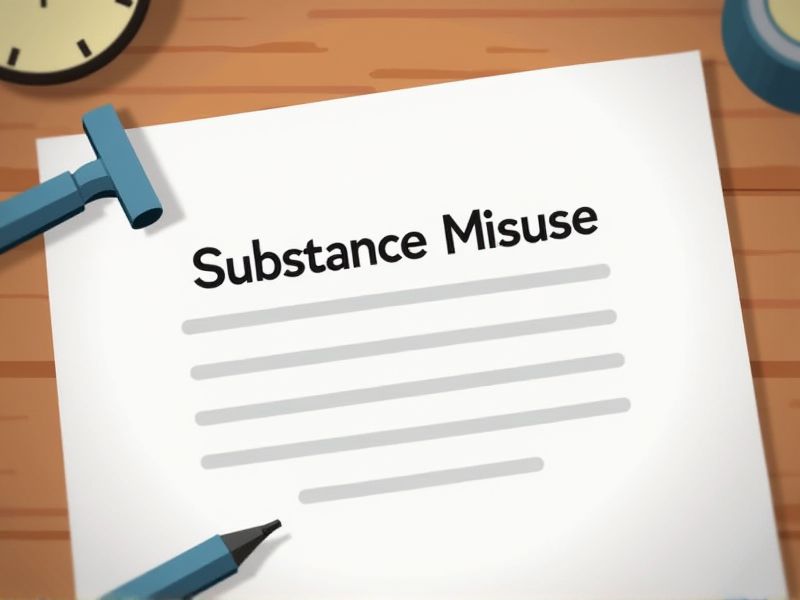
Substance misuse counselors often manage complex client cases, necessitating a thorough understanding of addiction's psychological, social, and physical impacts. Earning certain certifications equips counselors with specialized skills and knowledge to effectively address these multifaceted challenges. Certifications also enhance credibility and trust among clients and professional peers. Consider these key certifications that may be essential for a Substance Misuse Counselor.
Certified Alcohol and Drug Counselor (CADC)
Substance misuse counselors must address complex issues that require specialized knowledge, which necessitates a Certified Alcohol and Drug Counselor (CADC) to ensure competency. The CADC credential demonstrates that a counselor has met rigorous standards and possesses up-to-date training specific to addiction. This certification increases the trust and confidence of clients seeking treatment, thereby improving engagement and outcomes. Regulatory bodies and treatment facilities often require the CADC to meet professional guidelines and maintain quality care standards.
Certified Addiction Counselor (CAC)
The need for Certified Addiction Counselors (CAC) arises from their specialized training in understanding the complexities of substance use disorders, allowing them to provide effective support and interventions. Certification ensures counselors possess a standardized level of knowledge and approaches, which is crucial for maintaining consistent quality in addiction treatment. Counseling professionals with certification are equipped to address both the psychological and physiological aspects of addiction, enhancing the treatment success rates. Data shows that individuals receiving care from certified counselors often experience better recovery outcomes and lower relapse rates.
National Certified Addiction Counselor (NCAC)
The National Certified Addiction Counselor (NCAC) credential ensures a standardized level of knowledge and skill in handling addiction counseling effectively. As substance misuse issues continue to rise, the demand for qualified professionals equipped to tackle complex addiction challenges grows, making certification crucial. Clients seek assurance in receiving care from counselors whose competencies are validated through recognized credentials like NCAC. Employers and institutions prefer hiring certified professionals to maintain trustworthiness and enhance the quality of care within their programs.
Licensed Alcohol and Drug Counselor (LADC)
Substance misuse often involves complex psychological and social issues, requiring a Licensed Alcohol and Drug Counselor's expertise to navigate treatment effectively. A LADC possesses specialized training in addiction therapy methods, enabling them to provide tailored interventions. The LADC certification assures clients of a counselor's competency, as it involves rigorous state and national criteria. Employing a LADC can significantly enhance recovery outcomes due to their ability to integrate evidence-based practices.
Certified Substance Abuse Counselor (CSAC)
Substance use disorder (SUD) cases have been escalating, leading to a higher demand for Certified Substance Abuse Counselors (CSAC) who possess specialized training to address these issues effectively. Evidence shows that professional certification equips counselors with the necessary skills and ethical standards to help individuals navigate recovery successfully. A structured approach by CSACs improves treatment outcomes, affording clients a better chance of long-term recovery. Regulatory bodies often mandate certification to ensure consistency in treatment quality and client care across the field.
Certified Addiction Treatment Counselor (CATC)
A Certified Addiction Treatment Counselor (CATC) possesses specialized training, offering a standardized approach to address substance misuse effectively. Their expertise ensures adherence to established guidelines, reducing the risk of malpractice in treatment protocols. Certification signifies a commitment to ongoing education, equipping counselors with updated knowledge on emerging substance trends and treatment modalities. Clients benefit from a structured care plan, leading to improved recovery outcomes and long-term sobriety.
Certified Clinical Mental Health Counselor (CCMHC)
Substance misuse often involves complex psychological issues, requiring the specialized skills of a Certified Clinical Mental Health Counselor (CCMHC) to effectively address underlying mental health conditions. The integration of mental health expertise ensures a comprehensive treatment approach that supports both emotional and behavioral aspects of recovery. Licensed CCMHC professionals bring advanced therapeutic techniques and interventions, enhancing the quality and efficacy of substance misuse counseling. Possessing a broad understanding of co-occurring disorders, CCMHCs can tailor individualized treatment plans that improve long-term outcomes for clients struggling with addiction.
Motivational Interviewing Certification (MIC)
Motivational Interviewing Certification equips counselors with effective techniques to engage clients in their recovery journey by enhancing communication skills. This certification ensures counselors can foster intrinsic motivation, crucial for clients to initiate and sustain behavior change. Proficiency in motivational interviewing aligns with evidence-based practices, which can lead to improved recovery outcomes. Lack of such certified training might limit a counselor's ability to support clients effectively, potentially impacting treatment success rates.
Trauma-Informed Care Certification (TICC)
Trauma-Informed Care Certification equips substance misuse counselors with a comprehensive understanding of the impacts of trauma, which is prevalent among individuals struggling with addiction. It enhances the counselor's ability to create a safe and supportive therapeutic environment, minimizing the risk of re-traumatization. Trauma-informed approaches promote personalized interventions that address the underlying trauma contributing to addictive behaviors. Counselors with this certification are better prepared to build trust, resulting in more effective treatment outcomes for clients.
Cognitive Behavioral Therapy Certification (CBT Certification)
CBT Certification equips substance misuse counselors with evidence-based techniques that effectively address clients' negative thinking patterns linked with addiction. Proper CBT training improves counselors' ability to facilitate behavioral change and skill development, leading to better treatment outcomes. As addiction often involves underlying psychological issues, certification ensures counselors are prepared to address these complexities. Certification also enhances professional credibility, making counselors more competitive and trusted within the mental health field.
Summary
By obtaining certifications, your credibility as a Substance Misuse Counselor can significantly increase, fostering greater trust from clients and employers. Certification often leads to enhanced knowledge and skills, allowing for more effective interventions and improved client outcomes. As a certified counselor, your prospects for career advancement, including salary increases and leadership roles, are likely to expand. Overall, certified professionals are typically viewed as highly competent, leading to higher job satisfaction and a stronger professional reputation.
